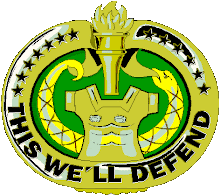Kerry Lacks Character
A Question of Character
By Jeff Jacoby, Globe Columnist October 31, 2004
IF YOU were to choose just one vignette to illustrate John Kerry's worst character flaw as a public official -- his lack of political courage -- what would it be?
You might pick the speech on "Race, Politics, and the Urban Agenda" that Kerry gave at Yale in 1992 -- the first, he said, of a series on race and urban issues. His speech drew attention because of its mild criticism of affirmative action, which had led, in his words, to "a reality of reverse discrimination that actually engenders racism." For uttering the obvious, Kerry was instantly condemned on the left. One Boston paper accused him of having "embraced tactics that . . . widen the country's racial divide." Because of him, a journalist wrote, blacks felt "stabbed in the back."
Kerry could have stuck to his guns. But he backed down. He delivered no more speeches on the subject and has obediently endorsed affirmative action ever since.
Another episode involved the questionnaire Kerry answered during his first Senate race in 1984. The questions came from Freeze Voter '84, an antidefense group whose endorsement Kerry sought in the Democratic primary. To get it, he said he would vote to cancel a host of weapons systems: the B-1 and Stealth bombers, cruise and Pershing missiles, many others. He excepted only the Trident submarine, whose development he supported. Then he was told that if he stood by the Trident, the endorsement would go to his main opponent, who had come out against all the weapons on the questionnaire.
So Kerry changed his answer. He agreed to oppose whatever Freeze Voter '84 opposed -- including the Trident. The group got the answers it wanted, and Kerry got the endorsement he craved.
But my choice for most telling vignette would be the one about the Gulf War letters.
On Jan. 9, 1991, as the crisis over Iraq's invasion of Kuwait was building to a climax, Kerry received a letter from a constituent, Walter Carter of Newton.
"Dear Senator Kerry," it began. "I urge you to support President Bush's request that Congress approve the `use of all necessary means' to get Iraqi forces out of Kuwait. To deny the president's request would encourage further aggression."
On Jan. 22, Kerry replied.
"Dear Mr. Carter," he wrote. "Thank you for contacting me to express your opposition to the Bush administration's additional deployment of US military forces . . . and to the early use of military force by the US against Iraq. I share your concerns. On Jan. 11, I voted in favor of a resolution that would have insisted that economic sanctions be given more time to work and against a resolution giving the president immediate authority to go to war."
Nine days later, he replied again.
"Dear Mr. Carter," Kerry's second letter said. "Thank you very much for contacting me to express your support for the actions of President Bush. . . . From the outset of the invasion, I have strongly and unequivocally supported President Bush's response to the crisis and . . . our military deployment in the Persian Gulf."
As his glaringly inconsistent responses to Carter -- both form letters, of course -- make clear, Kerry's habit of coming down firmly on two side of controversial issues didn't begin with his presidential campaign. It has been a hallmark of his political career.
If voters have learned anything about Kerry by now, it is that time and again he will unhesitatingly say "flip," only to subsequently say "flop." The war in Iraq, executing terrorists, stiffer sanctions on Cuba, free trade agreements, pre-emption, defense-of-marriage laws, Israel's security fence, the Grenada invasion, the Patriot Act, reducing troop levels in Korea -- on all of these and more, Kerry has taken contradictory positions, often abandoning a politically difficult stand for one more convenient or popular.
Did he throw away his medals in 1971? First he said yes, then he said no. Should taxes on dividends be reduced? First he said yes, then he said no. Is the war on terrorism basically a "manhunt?" Yes, no. Does own an SUV? Yes, no.
All thinking people change their minds occasionally. But it is one thing to alter an opinion because of new information or further reflection. It is something very different to do so out of a compulsion to tell each audience what it wants to hear. Kerry has many gifts, but political courage is not among them. As president, could he take a tough stand and stick with it, even if there were a price to pay for doing so? All the evidence to date says no.
George W. Bush is far from perfect. He refuses to admit mistakes. He resists constructive criticism. His humor can be petty or cutting. His administration is secretive and self-righteous -- traits that presumably start at the top.
But Bush, unlike Kerry, has the courage of his convictions. He can take a strong stand and not run away from it when the political winds shift. On the big issues, the crucial issues, he is a decisive man who means what he says -- and isn't afraid to say it even when his listeners disagree.
For a nation going to the polls in wartime, no issue matters more than character. Kerry has much to recommend him, and Bush's flaws are many. But Bush has the character and backbone of a leader. And Kerry doesn't.



0 Comments:
Post a Comment
<< Home